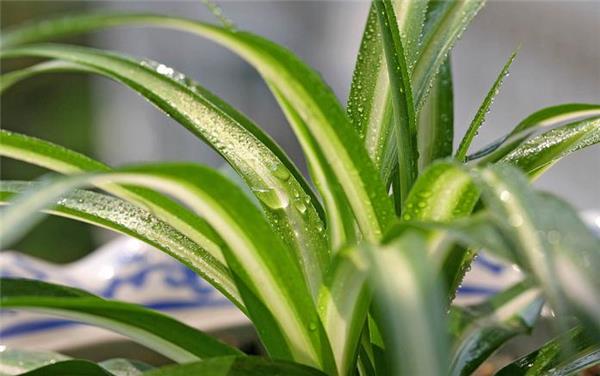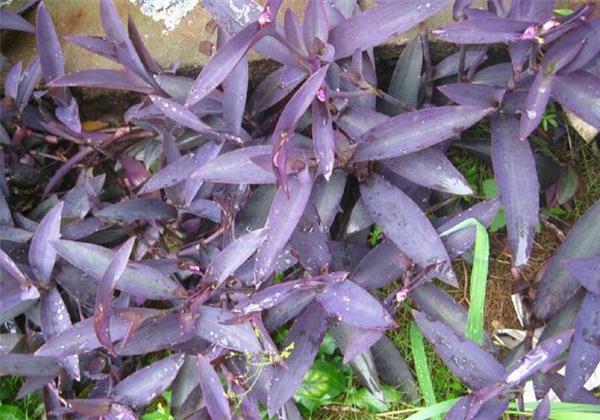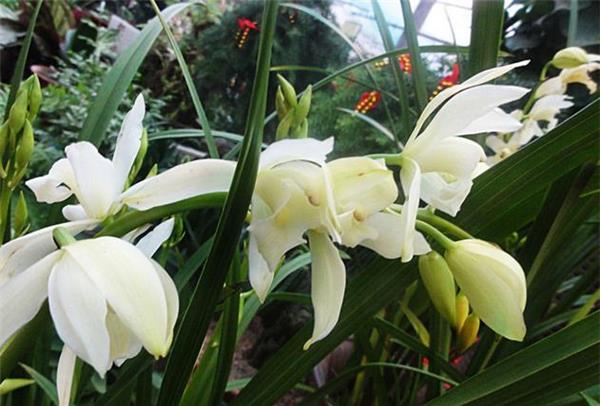What are the common Monocotyledons
There are many kinds of plants, one of which is Monocotyledon. So, what are the common Monocotyledons? Perhaps some friends do not have a special understanding of this. Today, I will give you a brief introduction. Let's learn about it together.

What is a Monocotyledon
The so-called Monocotyledon is called Monocotyledons, referred to as monocots, and its old name is Monocotyledoneae or Liliopsida. Monocotyledon has about 59300 species. Of these, the largest family is Orchidaceae, with more than 20000 species. The leaf veins of this kind of plants are often parallel veins, the flowers and leaves are basically 3, and the seeds are characterized by 1 cotyledon.
The difference between Monocotyledons and dicotyledons
1. Monocotyledon
Morphological characteristics: whisker root system.
Primary structure: the outermost layer is epidermis, the cortex is broad, the endothelial cells are horseshoe type thickening, and the vascular column is limited external toughness type.
Secondary structure: Monocotyledons have no secondary structure.
Abnormal structure: the stele vascular bundle is a dicotyledonous plant of Zhou wood type and limited external toughness type (Acorus calamus root).
two。 Dicotyledonous plant
Morphological characteristics: straight root system.
Primary structure: the outermost layer is the epidermis, the cortex is broad, the endothelial cells have Kjeldahl zone, and the vascular column is infinitely tough.
Secondary structure: the outermost layer is periderm (including cork layer, cork cambium, cork inner layer), and the vascular bundle is infinitely tough.
Abnormal structure: concentric ring arrangement of abnormal vascular tissue (root of Achyranthes bidentata) with vascular column (Polygonum multiflorum tuber root).

What are the monocotyledons?
1. Liliaceae
The representative of Monocotyledon is Liliaceae, which contains about 2000 species belonging to 175 genera, but the number of genera and species varies greatly according to different viewpoints; it is a family distributed all over the world. Most Liliaceae plants have large and bright flowers, which are ornamental flowers all over the world, such as lily, tulip, hyacinth, hemerocallis, hairpin, lily of the valley, hanging orchid, asparagus, Ophiopogon, step grass, Fritillaria, Jialan, tiger evergreen, tiger tail orchid, seven-leaf flower, spider egg, yellow essence. In addition, monocotyledons such as cauliflower, garlic, onion, onion and onion can be eaten as vegetables.
two。 Gramineae
There are nearly 750 genera and 10,000 species of Gramineae Monocotyledons, ranking fourth among angiosperms. It can grow everywhere except deserts and ice and snow areas, such as reeds growing on the banks of temperate rivers and lakes, and Gramineae have a strong ability to restore growth and regenerate quickly after mowing or grazing. Gramineae can be divided into 2 subfamilies, Bambusoideae and Gramineae, in which the representative plant is bamboo, which blossoms only once in its life and dies after flowering. Other common bamboos are pink, green, pole, tube bamboo and so on. Ornamental bamboo can be used as a hedge.

3. Phaeoptera
This subject Monocotyledon is mainly herbaceous, a few lianas, climbing or epiphytic, with rhizomes, tubers or bulbs, plants contain water-like sap, sometimes with pungent smell, irritating to mucous membrane, burning sensation. Juice can cause skin irritation and itching, but it can be eliminated after roasting, mainly including Artemisia angustifolia, Pinellia ternata, calamus, millennium health, sea taro, as well as tortoise back bamboo, calla lotus, flower leaf taro, white palm, Anthurium andraeanum, evergreen.

This is the end of the introduction of Monocotyledons. I believe that after reading it, we have a certain understanding of Monocotyledons. I hope the relevant knowledge points introduced today can be helpful to everyone.
Related
- Wuhan Hospital Iron Tree Blooming Result Was Instantly Frightened by the Gardener Master
- Which variety of camellia is the most fragrant and best? Which one do you like best?
- What is the small blue coat, the breeding methods and matters needing attention of the succulent plant
- Dormancy time and maintenance management of succulent plants during dormancy
- Minas succulent how to raise, Minas succulent plant pictures
- What are the varieties of winter succulent plants
- How to raise succulent plants in twelve rolls? let's take a look at some experience of breeding twelve rolls.
- Attention should be paid to water control for succulent plants during dormant period (winter and summer)
- Watering experience of twelve rolls of succulent plants
- Techniques for fertilizing succulent plants. An article will let you know how to fertilize succulent plants.



